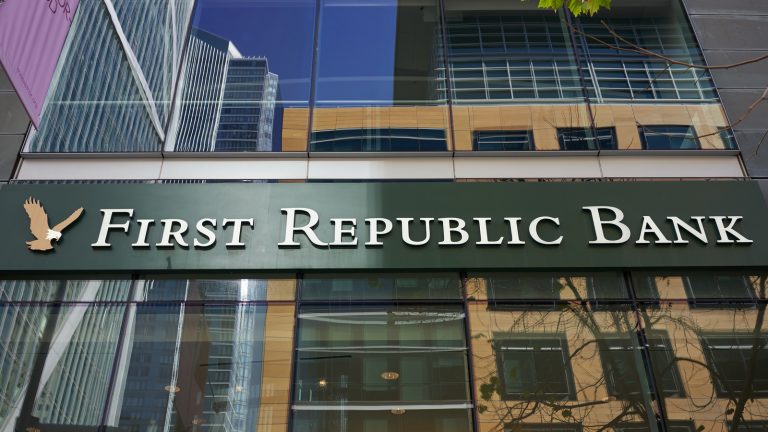First Republic Bank (NYSE:FRC) is officially on its way out. As markets opened this morning, the New York Stock Exchange issued a statement confirming its plans to delist FRC stock. The exchange notes that its regulatory department will delist eight securities associated with the bank, which finally collapsed yesterday before JPMorgan Chase (NYSE:JPM) confirmed it would be taking it over. As of this writing, trading has been halted for FRC stock and seven of the company’s depository shares.
Ever since the run on SVB Financial’s (OTCMKTS:SIVBQ) Silicon Valley Bank on March 10 that sent the entire sector into turmoil, investors have been watching First Republic keenly. As InvestorPlace reported, it had
strong parallels to the bank whose collapse sparked the meltdown. Now the company has crumbled, proving that the banking crisis isn’t over.
FRC Stock Is Done Trading
Last week, the question arose as to whether the U.S. government would let First Republic collapse. Four days later, we have the answer. For investors who still hold FRC stock, the future remains highly uncertain. However, what we do know is that the troubled bank has ceased trading. Per the statement released by the NYSE:
“NYSE Regulation determined that these Securities are no longer suitable for listing pursuant to Section 802.01D of the NYSE Listed Company Manual in light of the May 1, 2023 Federal Deposit Insurance Company (FDIC) news announcement that First Republic Bank, San Francisco, California was closed on May 1, 2023 by the California Department of Financial Protection and Innovation, which appointed the FDIC as receiver, and JP Morgan Chase Bank agreed to acquire all of its deposits and substantially all of its assets.”
While the future remains uncertain, CBS News reports that First Republic shareholders won’t be receiving JPM stock. The collapse of First Republic and delisting of FRC stock is likely to pull banking stocks down today. This news should serve as a warning bell to investors that the banking crisis is still ongoing and that similar companies may fail as well.
On the date of publication, Samuel O’Brient did not have (either directly or indirectly) any positions in the securities mentioned in this article. The opinions expressed in this article are those of the writer, subject to the InvestorPlace.com Publishing Guidelines.

